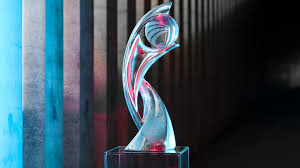June 26 – UEFA Women’s EURO 2025 is on course to deliver a watershed moment for the commercial side of the women’s game, with new research from Ampere Analysis projecting a minimum of €32.5 million in sponsorship revenue – more than double the €15.3 million generated in 2022.
The 112% jump is a clear sign that the tournament is entering a new phase of commercial maturity, backed by rising fan interest and a tailored sponsorship model now proving its value.
At the heart of this success is UEFA’s decision, dating back to 2018, to decouple women’s football rights from the men’s game. That move allowed brands to align themselves exclusively with women’s competitions such as the Women’s EURO and Women’s Champions League – on a standalone basis, encouraging a broader range of companies to enter the space, and the results are now evident.
UEFA now counts 11 official women’s football sponsors, with new global entrants including Amazon, Euronics, Grifols, and Visa. Regional players like Lidl, Unilever, and Wiesenhof—sponsors of the 2024 Men’s EURO in Germany—have also extended their investment to the women’s game, attracted by strong audience overlap and geographic proximity. In total, 20 global and national sponsors have signed up for the 2025 event, which will be hosted in Switzerland form the 2nd of July.
The commercial growth mirrors a surge in viewership. Ampere’s data shows that 76% of European sports fans now watch the Women’s EURO live on TV, up from 53% in 2022.
This expanding base is also proving valuable to consumer-facing brands: fans of the Women’s EUROs are 53% more likely to purchase groceries, snacks, and confectionery than the average sports viewer—aligning with Lidl’s recent activation around the tournament.
The sharp rise in sponsorship revenue puts UEFA’s women’s competitions at the forefront of commercial growth in women’s sports, setting a benchmark not only in football but across the wider industry.
As the countdown to kick-off in Switzerland continues, UEFA and its partners deserve credit for creating a tailored commercial ecosystem that lets women’s football stand on its own. The results show what happens when strategy meets growing demand—and proves there’s nothing niche about the future of the women’s game.
Contact the writer of this story, Harry Ewing, at moc.l1750948980labto1750948980ofdlr1750948980owedi1750948980sni@g1750948980niwe.1750948980yrrah1750948980
